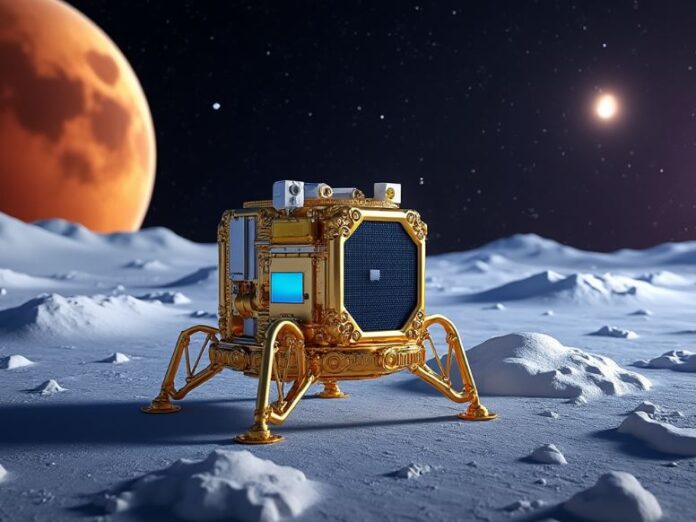In a monumental stride toward space exploration, Chinese scientists have introduced a groundbreaking 12kg device aimed at retrieving and returning Mars samples to Earth. This development comes as part of China’s ambitious Tianwen-3 mission, with plans to potentially return Martian rocks to our planet by around 2028, making it a significant player in the race to understand our celestial neighbor’s geology and potential for life.
The device, ingeniously designed to operate in the harsh conditions of space, functions by capturing a sample container launched from the Martian surface. After the samples are collected by a lander, they are propelled into Mars’ orbit using an ascent vehicle. Here, the new Chinese device comes into play. It’s mounted on an orbiting spacecraft, designed to trap and secure the sample container once it reaches orbit.
This lightweight module, described as innovative for its compact size and efficiency, then transfers the Martian samples into a storage vessel. This vessel is specifically engineered to withstand the rigors of interplanetary travel, ensuring the samples remain intact and uncontaminated for their journey back to Earth.
The development of this device marks a significant engineering achievement, showcasing China’s capability in advanced space technologies. It follows the successful landing of China’s Tianwen-1 mission, which included the Zhurong rover, demonstrating China’s growing prowess in Martian exploration. The Tianwen-3 mission’s objective is not only to search for signs of life but also to study the Martian environment in unprecedented detail.
This project has implications beyond just scientific discovery. It positions China as a leader in space technology, potentially ahead of other nations in this particular aspect of space exploration. The mission’s success would be a testament to China’s commitment to deep space exploration, following its lunar sample returns with the Chang’e missions.
The Chinese space agency has expressed intentions to adhere to international treaties on planetary protection, ensuring that neither Mars nor Earth is contaminated through this sample return process. Additionally, there is an openness to international collaboration, where global scientists could participate in analyzing the Martian samples, fostering a cooperative spirit in space science.
This development has sparked discussions among space enthusiasts and experts worldwide, with many on platforms like X highlighting the potential for this mission to yield profound insights into Mars, possibly answering long-standing questions about life on other planets.



